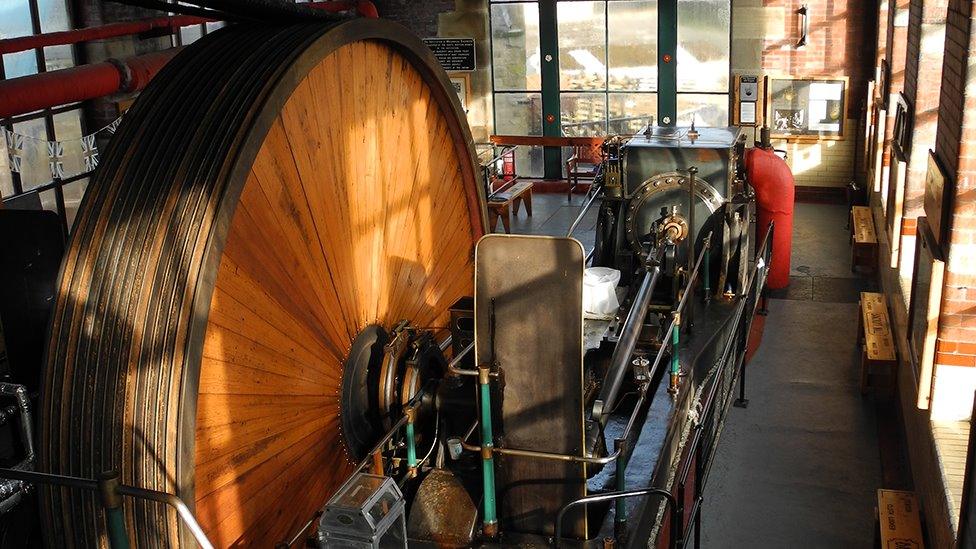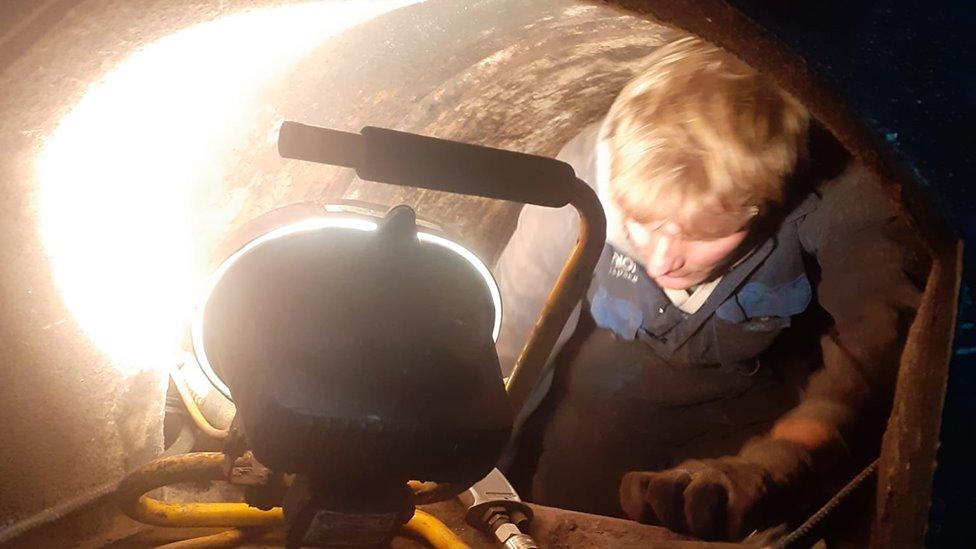Full steam ahead for Bancroft Mill after boiler repairs
- Published

Bancroft Mill - home to the Roberts engine - ran commercially from 1920 to 1978
Volunteers have been working round the clock to complete urgent repairs at an historic engine mill museum.
The first "steam Sunday" of the year at Bancroft Mill in Barnoldswick could not go ahead as planned because of problems identified with the 112-year-old boiler.
But the repairs were officially signed off and the engine can now run again.
"There's 2,000 gallons of water to turn into steam first," secretary Ian McKay said, "but we'll get there."
He said: "We couldn't steam the engines because the boiler repairs had taken longer than expected, but now we can get the engines going.
"Everything's on track, we've been working like billy-o and it's all finished.
"All the engines will be running and every bit of kit that we've got that works will now be able to be demonstrated to those who come."

Cleaning inside the boiler at Bancroft Mill
Established in 1982, the industrial heritage museum houses working steam engines and weaving looms.
The charity's aim is to maintain a link to the town's cotton heritage, by preserving and demonstrating the engine which powered over 1,000 looms in the mill from 1920 until its closure in 1978.
Mr McKay said: "Visitors will be looking at conditions in a mill that their grandparents used to work in, because everybody in this neck of the woods used to work in the cotton industry, so everybody comes and says, 'Eee, grandma used to work in a mill like this'.
"They can see part of the mill, they can see the steam engine running at its full speed which would have powered the mill.
"They can see the boiler working to provide the steam to run the engine and they can see looms weaving the cloth.
"We talk to them about what life used to be like and it gives them an experience that they can't easily get anywhere else.
"It's local history, it's the biggest steam engine in Lancashire, it's the only one left in the borough of Pendle.
"There used to be 160 mills in Burnley alone, so we're trying to preserve a little bit of what the place used to be like when it was cotton that ruled the county.
"It was cotton that provided the employment, it put bread on the table, so it was very important in Lancashire 100 years ago and we're trying to keep that little bit alive."

Why not follow BBC Lancashire on Facebook, external, X, external and Instagram, external? You can also send story ideas to northwest.newsonline@bbc.co.uk, external